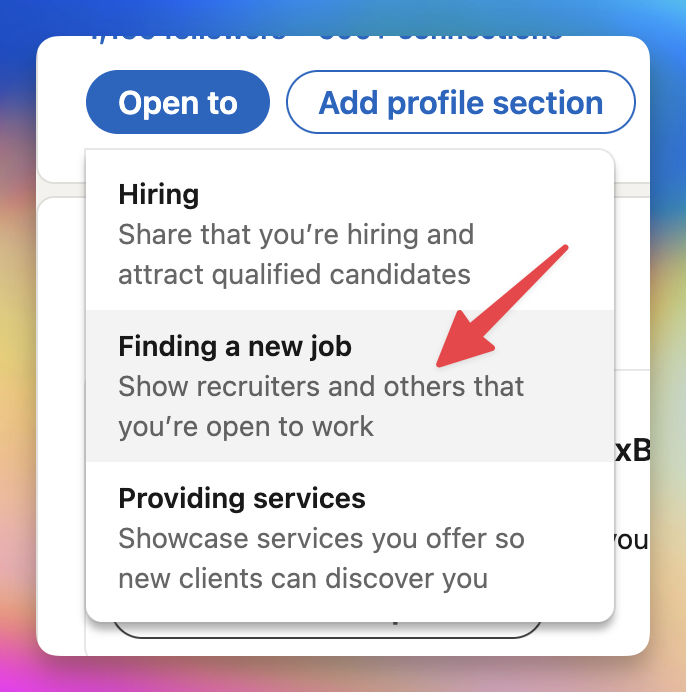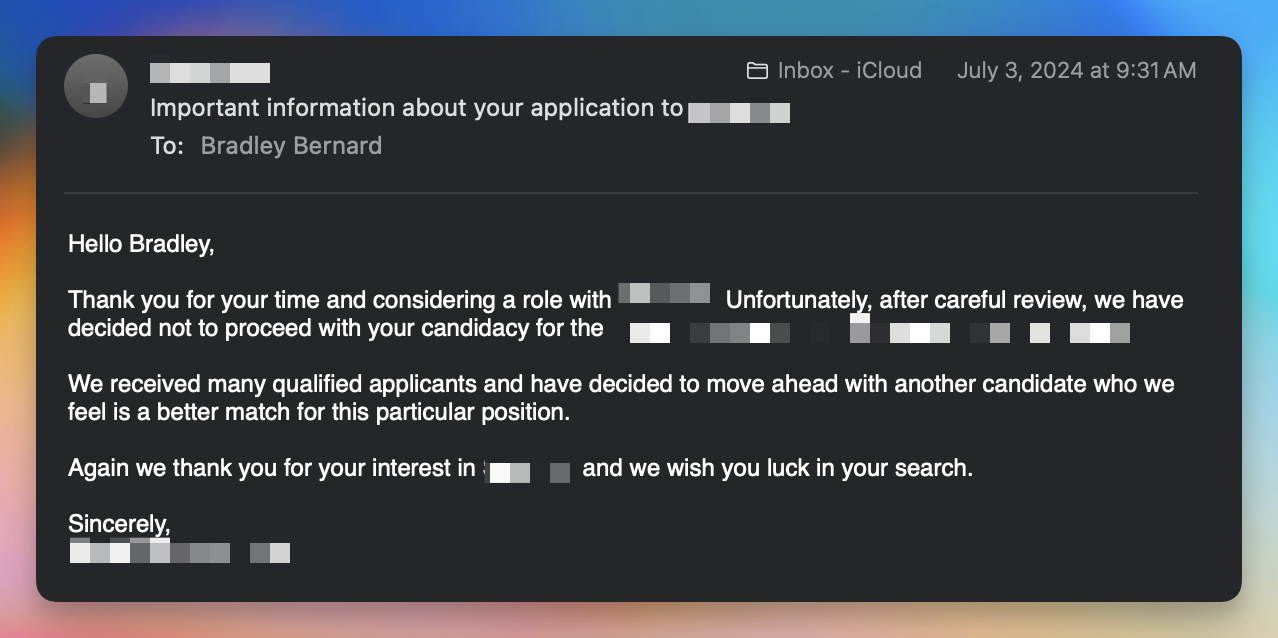Searching for a Senior+ Software Engineering job in late 2024
Job search motivation
I ran my own company VuxByte for one full year bootstrapped, and it was hard! I didn't make as much money as I wanted to, so ultimately the financial situation motivated me to find a job again. I'm very passionate about building elegant software and delightful products, so however I can make that happen in a financially lucrative way, I'm in! So... I started my job search in late June / early July for a Senior/Staff Software Engineering role.

How it started out
I knew the market would be cold; while at Meta I experienced the mass layoff events and talked with friends who went through similar rounds of large scale, continuous layoffs at other tech companies. Hiring is reduced, layoffs are on the rise, and AI spend is up. This was not like any of the other job markets I've encountered before, so how bad was it really?
When I started my job search journey, I chose to do earlier round of interviews for practice and preparation. I studied hard on Leetcode and mobile system design before applying anywhere, but there is nothing short of the real deal, when you face the situation head on in a live coding interview or behavioral interview. As I started applying, unfortunately, I got rejected from quite a few companies at the resume screener stage. It baffled me. I thought my resume looked good on paper, but these companies don't even give me a chance to prove myself :(

I was taken aback a bit; was my resume bad? Should I have written a cover letter? What is going on? I received probably 5-10 rejections in a row at the resume screener stage (after cold applying online). I redid my resume, touched up the personal website and other details and felt a bit more confident... also through it through AI to spice it up a bit and then got back to applying. A few companies wanted to move forward so I dipped my toes back into the interviewing mindset: iOS coding, algorithms coding, system design, behavioral/leadership interviews, you name it. I was getting somewhere now!
How I tracked my job search
Like any other engineer, I used a spreadsheet to track the companies I applied to, the stage I was currently at, the location, company size, team domain, and much more. It was my daily tab for the past few months: it felt good to update things when it went well, and felt bad when I had to flip a status to REJECTED in my status column. Being organized in your job search is essential, there is so much going on, writing things down makes your life way easier. It's also fun to look back on -- I've been doing this since 2018, seeing what companies I talked to, which ones I passed/failed, and how the final job offers turned out $ wise, is fascinating. I really wish there was an AI tool for this to make it all organized and easy (should I build it?).

Getting farther along in the interview processes
I casted a very wide net initially, I wasn't sure what I wanted, I love all types of software: web, mobile, CLI, dev productivity, build systems, and much more. I geek out about all things technology so when I went to apply to jobs on LinkedIn, I applied probably to way too many.
My calendar was extremely booked and as I get farther in the process, the (virtual) onsite stage was very very busy for me. I had planned travel to Laracon and and visiting a friend on the east coast, so in August I had roughly two weeks of "out of office" while I was knee deep in virtual onsite interviews. My calendar was filled every day of the week while I was home with a virtual onsite, so I got pretty darn good at the interview process with that much practice.

Interviewing is 100% a skill. Speaking about your own work in a story telling manner, describing your impact, technical challenges, leadership & mentorship in an accurate, concise, and meaningful way is not easy without putting in the effort. On top of that, you need the technical skills: live coding for iOS apps, live coding algorithms, live system design (web & mobile). I looked at interviewing as a fun challenge, although it's very stressful since you really want to do well. I found the less I cared about doing well, the better I performed since I would put too much pressure on myself, although it sounds counterintuitive.
Closing stages and job offer stats
Although I was defeated at the beginning of my job search from constant rejection, the second half was extremely fruitful for me, in a scale I haven't had before. I'm super proud of how things turned out and the job I accepted at the end of this phase. I want to share high level stats from how things ended up after 3-4 months of the job search process.
Overall stats:
- Jobs applied: 63
- Jobs rejected: 23 (20 at resume screening stage, 3 during first round technical)
- Onsite interviews: 11 (2 companies had a longer spread out interview, not all on one day)
- Job offers: 13 (6 offer letters, 7 verbal offers)
Job offer locations:
- Remote: 5 offers
- LA/OC: 3 offers
- Bay Area: 5 offers
Takeaways and lessons learned
If I were to do it again, I would apply to half the amount of companies and make the process a little bit longer & slower. I've always interviewed while having a full time job, so this was the first time I've had full 9-5 time to interview, it was exhausting and intense but so worth it. I couldn't imagine taking 11 onsites while having a full time job...
Like all job searches, I prioritized my job offers by company culture, people I interacted with, projects I'd lead, yearly total compensation, location, and overall fit. It wasn't easy to decide between so many, especially since I wasn't even sure what location I really wanted as you can see by the stats above. While I declined a lot of fantastic offers, I'm happy to have the privilege to go through so many great companies interview processes and secure competitive offers. I landed on an offer that hits great across all fronts, woohoo!!
Should you interview?
For folks out there job searching now, keep going! I've failed plenty of times in interviews this cycle and each failure pushed me to prep more, learn from my mistakes whether that be story telling or technical skills, and made my job search very successful. If you are waiting to get started, just go for it! You never know what you will find out there right now, good luck! :)
